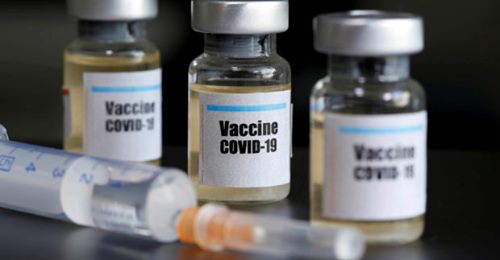ILOILO CITY — A committee of the 145-member League of Cities of the Philippines (LCP) will meet next week to tackle plans for direct procurement of COVID-19 vaccines by local authorities around the country, a former leader of the group said on Wednesday, December 23, 2020.
Iloilo City Mayor Jerry Treñas, who had served as LCP president and chair, said the LCP president, Bacolod City Mayor Evelio Leonardia, would call the meeting of the committee composed of city mayors to discuss the procurement of vaccines for cities in the country.
“We need to discuss plans especially for cities who can afford to buy their own vaccines because the sooner we can administer these, the sooner we can return to normal,” Treñas told the Inquirer in a phone interview.
He said Defense Secretary Delfin Lorenzana, who is chair of the National Task Force Against COVID-19, had given approval for the cities to procure vaccines.
Treñas said he had also appealed to business organizations and employers to also procure vaccines for their employees.
Iloilo allotment
The Florete Group of Companies, which includes radio network Bombo Radyo and a hotel chain in Iloilo City, has already announced its plan to procure vaccines, according to the mayor.
The Iloilo City government has allocated P109 million of a planned P200 million allotment for vaccine purchases.
Aside from hastening the procurement of vaccines and inoculation of their constituents, the proposed move would also ease the burden on the national government’s vaccination plans, Treñas said.
No guidelines yet
The national government has not released guidelines for the procurement and administration of vaccines, which are already rolling out in highly developed countries like the United States, United Kingdom, and Canada.
“The national government can probably focus on employees of national government agencies and offices, beneficiaries of the (Pantawid Pamilyang Pilipino Program) while the cities that can afford to procure vaccines can cater to city government employees, barangay officials, senior citizens and other residents,” Treñas said.
Win: Prioritize teachers
In Manila, Sen. Sherwin Gatchalian said the government must include public school teachers and personnel among the first people to be vaccinated as they could be considered front-liners.
He said inoculating teachers would be a “crucial step” in ensuring the safety of schools and build confidence in the gradual resumption of in-person classes.
According to the senator, the country’s more than 900,000 teachers and nonteaching staff have been serving as front-liners to ensure the continued education of more than 22 million students during the pandemic.
The teachers risked their health and safety as they distributed learning materials to about 87 percent of public school students.
Gatchalian said that reopening the schools should be a priority to prevent a worsening of what he termed as a “learning crisis” hounding the country.
He cited the poor performance of Filipino students in recent global educational assessments, such as the Programme for International Student Assessment (Pisa) 2018, the Trends in International Mathematics and Science Study (TIMSS) 2019, and the Southeast Asia Primary Learning Metrics (SEA-PLM) 2019.
A policy brief from the United Nations had identified the suppression of the virus transmission as the “most significant step” to hasten the reopening of schools.
Case tally
On Wednesday, the Department of Health logged 1,196 new COVID-19 cases, raising the national tally to 464,004. Quezon City had the most number of new infections (123), followed by Rizal (84), Manila (74), Davao (54), and Batangas (49).
Another 564 patients have recovered from COVID-19, bringing the total number of survivors to 429,972.
The death toll, however, rose to 9,048 after 27 patients succumbed to the severe respiratory disease.
The recoveries and deaths left the country with 24,984 active cases, of which 81.8 percent were mild, 9.5 percent asymptomatic, 0.32 percent moderate, 2.9 percent severe and 5.5 percent critical. —WITH REPORTS FROM MELVIN GASCON AND JOVIC YEE INQ
